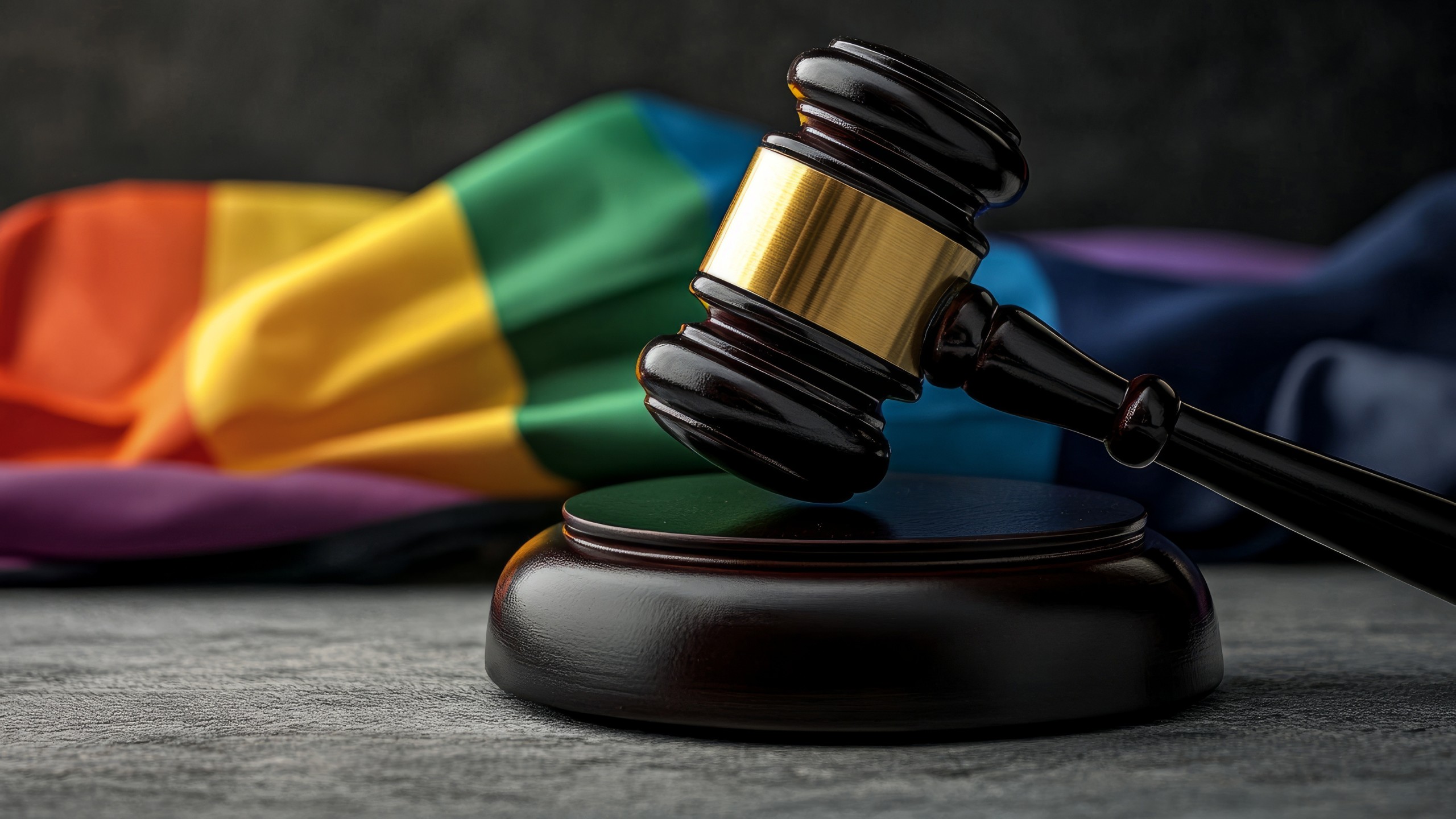This post was guest authored by Jordan Wispell and Brynna Popka, two attorneys with relationship to and experience working with the LGBTQ+ community. A top Loyola Marymount grad and former congressional intern, Jordan now works at the intersection of product liability and class action cases. Brynna specializes in personal injury law and was named a Top 40 Under 40 Trial Lawyer by The National Bar Association in 2023.
Many clients that identify as LGBTQ+ may feel hesitant when filing a complaint or first speaking with an attorney. We understand that hesitation: our legal system isn’t always fair and doesn’t always treat people fairly. Even if the client’s issue does not relate to their identity, it makes sense to be concerned that their personal life may be brought up or even used against them while pursuing a lawsuit.
As experienced attorneys who have worked closely with and identify within the LGBTQ+ community, it’s our job to advise clients of risks while protecting their interests. But to do so, we first must create an environment where clients feel comfortable being themselves.
In our personal injury, employment law, and product liability practices, we think a lot about how to support marginalized clients when they fear backlash or retaliation, and how to ensure they feel both respected and heard. Here, we draw on our experiences to reflect on the manifold ways lawyers and law firms can embrace diversity and promote justice—both within the courtroom and beyond.
Providing Safe Spaces for Queer Clients
As litigators, we want our clients not only to be comfortable, but confident. How do we get there? Broadly, we focus on putting clients at ease when they’re hesitant to disclose certain details about their case or are concerned that aspects of their personal life may come out in trial.
We’ve determined a few key components of a strong attorney-client relationship that may be particularly useful when working with queer clients or members of at-risk communities.
Building Trust
No matter what kind of case they bring, clients share vulnerable aspects of their lives with their attorneys. We take that seriously. From the first time a client reaches out to a firm, the interaction should be warm, accepting, and empathetic. Every point of contact should be transparent and honest in order to foster a strong relationship from the very start.
Zero Judgement
Clients may understandably fear that an attorney will judge certain aspects of their life, particularly if those aspects are very private or have been a source of discrimination in other contexts. It’s vital that attorneys approach all clients with an open mind and a willingness to learn from their experiences. Judgment and bias have no place in the attorney-client relationship.
Meeting Clients Where They Are
If clients are hesitant to disclose personal details – or to begin the legal process in general – attorneys should be ready to guide them without pushing them too far out of their comfort zone. Being willing to meet a client in the middle, whether that means sharing your own experience to make them more comfortable or simply demonstrating patience and compassion, can go a long way toward making a client feel supported and seen.
The Impact of Shared Identities
While all attorneys should strive to meet their clients with empathy and acceptance, not all attorneys will be able to immediately understand or identify with their clients’ experiences. When that does happen, however, it can often be a powerful way to build a strong connection.
In our experience, clients who feel concerned about sharing their personal lives may feel more at ease working with an attorney who identities within the LGBTQ+ community. The sense of mutual understanding may create space for immediate connection. For instance, we’ve had clients begin to share intricate details of their lifestyle and experience, only to stop when they realize: we already understand. That kind of reciprocity offers a sense of relief for clients who may otherwise feel burdened by the need to explain their choices, family structure, or personal dynamics.
With shared identities, there are opportunities to form supportive, trusting bonds which ultimately contribute to the client’s overall wellbeing, not to mention their case’s success.
The Importance of Inclusivity
As a plaintiff’s side law firm, we see clients from all walks of life. It’s fundamental to the McCune Law Group ethos that we maintain a diverse team of attorneys from a wide range of backgrounds, so there is always an attorney who may be able to understand a client’s lived experience. A roster of attorneys with unique perspectives not only encourages stronger strategizing, collaborating, and problem-solving, but allows us to better serve those who seek our support.
Some benefits of law firms encouraging diversity may include:
- Increased transparency in attorney-client relationships
- Attorney comfort and confidence in the workplace
- Sensitivity to unique client situations and potential cases
- Stronger collaborations and improved problem solving
Ultimately, when law firms foster inclusivity internally, it’s the clients who benefit. Whether they’re from a marginalized or underrepresented group or simply fear being misunderstood, someone at a diverse firm like McCune Law Group is going to be able to relate on a level that can encourage better outcomes for the client.
Embracing Difference
As Pride month comes to a close, there is no reason that attorneys or clients should stop being proud of their unique identities, whether they’re members of the LGBTQ+ community or not.
For lawyers and clients alike, it’s important to be able to bring your true selves to the table when beginning a lawsuit. When differences are embraced as strengths, progress can be made everywhere from the negotiating table to the communities we live in and serve. Though in lawsuits there is almost one clear loser, when it comes to promoting inclusion and acceptance in the legal field – everybody wins.

To learn more about Brynna and Jordan‘s work, fill out our contact form or call (909)757-1812 today.
